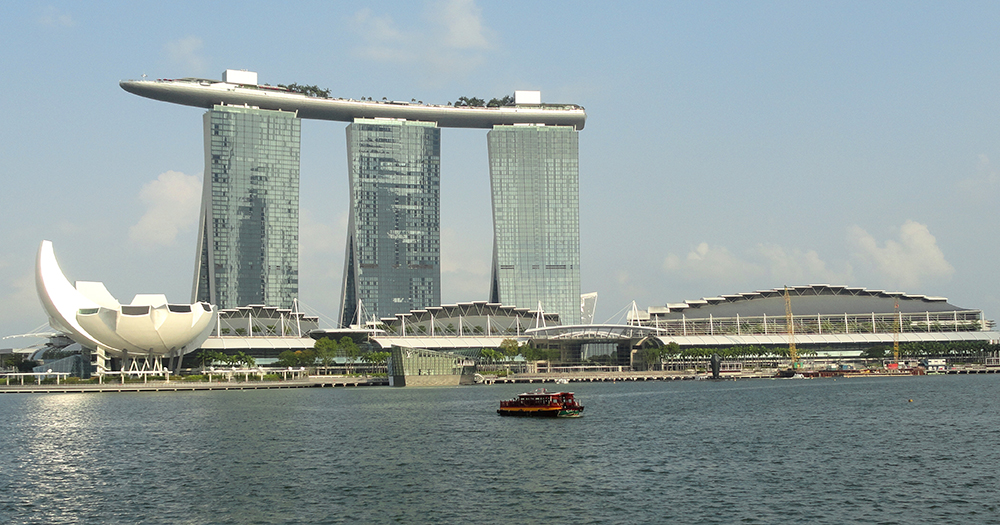Follow us on Telegram for the latest updates: https://t.me/mothershipsg
Expatriates have begun leaving Singapore amidst the global economic fallout of Covid-19, the South China Morning Post (SCMP) reported.
Reasons that were cited included the high cost of living as a major factor, as well as companies cutting down to only essential services in their overseas branches.
The article featured the accounts of two expatriates, as well as anecdotes from the staff of services which are used by them.
The high cost of living in Singapore
One of the expatriates interviewed, Martha Liv, highlighted that her husband had to take a 20 per cent pay cut amidst the outbreak, resulting in a struggle "to balance the books".
SCMP noted a request she had made to have their monthly rent of S$2,700 reduced ejected by the family's landlord, thereby resulting in the need to find ways to stretch her husband's monthly salary of S$6,000, before paying rent.
She was also reported to be currently shopping at the wet market instead of the supermarket, buying "regional ingredients" instead of Western-imported ones, and taking of both her 17-month-old son and household without domestic help.
She was quoted as stating:
"It’s not cheap living here. We’re taking from our savings for our normal expenses. How many months can you live on your savings?"
Company cutting down to only essential functions in Singapore
Meanwhile, a second expatriate, Sabrina, was reported as being in the process of packing up to return the U.S., as a result of her husband being told by his employer that he will be sent back there.
The move comes as part of the company leaving only its essential functions in Singapore and China
In this case, the family dog has to be left behind "until direct flights between the two countries resume."
She will also be homeschooling her children back in the U.S. given that she has to pull them out of here in Singapore.
The company had not approved their request to remain in Singapore until December, so as to finish the school year.
A phenomenon that's not limited to Singapore
Such a phenomenon is not limited to Singapore however.
Bloomberg reported that a similar experience is also occurring for expatriates in Dubai with a similar issue: the high costs of living amidst the loss of jobs.
An Australian expatriate, Sarah Sissons, stated that with the same amount of money she had back in Australia, she would at least still have medical insurance and free schooling if she "ran out of everything."
A Canadian expatriate, Marc Halabi, also voiced a similar sentiment, given that he had lost his job in March, and can no longer afford to hold out any more in Dubai.
Bloomberg further reported that the issue is expected to accelerate the UAE's efforts to retain its residents, while striking a balance against citizens who are used to receiving many benefits as result of the discovery of oil.
So what is Singapore doing about this?
In his national broadcast on June 7, Prime Minister Lee Hsien Loong stated that the country was "working hard to retain and attract talent and investments to contribute to our recovery."
He added that this was crucial, so as to allow both Singapore's industries and workers to recover faster and emerge from the crisis in a stronger position.
"At a time when some countries are closing their doors, we are keeping our open."
He was echoed by Minister for Culture, Community and Youth Grace Fu in a Facebook post on June 3, which cautioned against racism and xenophobia, and stressed that the rules in Singapore applied to all, regardless of nationality.
As per Fu's post:
"COVID-19 is a public health crisis around the world. In Singapore, it has also impacted our race relations where we have seen increased occurrences of racist and xenophobic acts. Everyone, regardless of their ethnicity and origin, has a responsibility to one another to abide by the rules, and to keep each other safe. This is non-negotiable. We have emphasised and enforced this, equally, among locals and foreigners alike – for example, with reference to the gathering at Robertson Quay, 7 people have been charged. However, while we are understandably frustrated at the situation, we cannot let this pandemic divide us. We must stand together in solidarity, as a cohesive, caring and united Singapore."
Top image by Fabio Achilli via Flickr
If you like what you read, follow us on Facebook, Instagram, Twitter and Telegram to get the latest updates.
